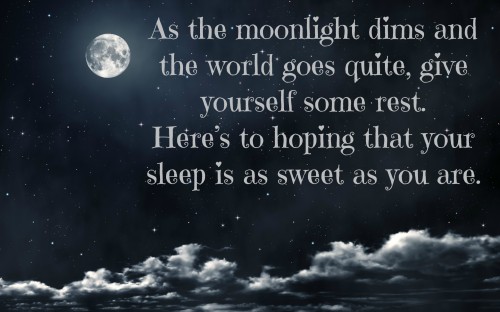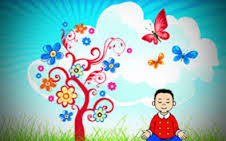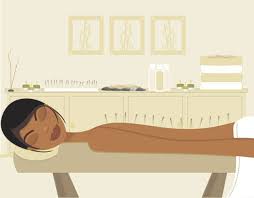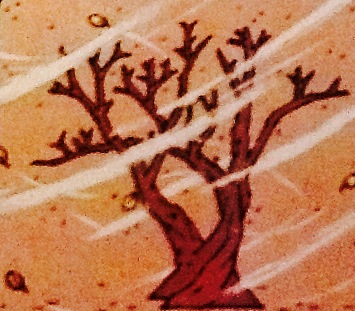Late Summer is upon us. In Traditional Chinese Medicine (TCM) it is considered the “Fifth Season.”
In TCM, each season has its own associations and qualities (color, taste, sounds, emotions, etc.). Late Summer is about proper nourishment leading to transformation. It is a time to center oneself and build strength through digestion, which in turn boosts the immune system as we move into shorter, colder, darker days of fall and winter. The other side effect of well functioning digestion, is a clarity of thought and the strength to follow through on your goals. On the flip side, if digestion is off and nourishment poor, we tend toward fatigue, weight gain, catching colds, and worry.
Now is a great time to refocus on your health, and clean up the diet after summertime fun.
The qualities associated with Late Summer provide hints for how to get there:
Color: Yellow and Orange

Element: Earth (central to all other elements, it is literally the ground beneath our feet, and grows all that nourishes us…this is a good time to reconnect to the earth with hiking and walking.)
Direction: Center (when we are in balance, we say we are “centered”, and also, not coincidentally, where our digestive organs are located)

Taste: Sweet (like carrots, sweet potatoes and tomatoes)

Organs: the Stomach and Spleen (Now is the best time to strengthen them.)
Time: 9-11 a.m. (This is considered “spleen” time on the Chinese clock. According to the clock, the stomach is strongest between 7-9 am–a good time for breakfast–and the spleen helps to digest between 9-11 a.m. During Late Summer, digestive strength is given a boost during spleen time.)

Sound: Singing (Someone with an out of balance spleen, tends to have a sing-songy voice.)
Odor: Sweet, Fragrant
Body Tissue: Muscles and Flesh (Strong spleen function means strong muscles. Weak spleen function / digestion means weak muscles, cellulite, and being overweight.)

Sense Organ: Mouth, Lips (Those who are constitutionally “spleen” people tend to have full lips. Pale, dry lips are a sign of weak spleen function.)
Climate: Damp (An out of balance spleen will manifest dampness. Signs of dampness include being overweight, having muscle aches, sinus trouble, a runny nose, foggy thinking, etc.)
Spirit: Thought (or “Yi” in TCM terms) (The health of the spleen is manifested in the intellect. Weak spleen can mean foggy thoughts. Strong spleen tends to bring clarity. Note that too much studying / computer work can actually damage digestion.)
Virtue: Clarity, Integrity, Manifesting Intentions (can occur more easily when digestion is healthy)
Emotion: Worry, Pensiveness (can occur when there is a spleen / stomach imbalance)

Since now is the time to work on good digestion, here are some general guidelines for how to do so….
Nutrition and Digestion, Chinese Medicine Style:
The right diet is arguably the strongest preventive medicine there is. Proper nutritional therapy is also a good way to treat any of the body’s ailments.
A Chinese Medical book from 1601 states:
“The spleen/stomach network is the main source of life-sustaining postnatal energy.”

In other words, your genetics, plus diet and digestion, make up the state of your health.
So what is healthy eating, and what foods are recommended?
BASIC NUTRITIONAL GUIDELINES, TCM STYLE:
GUIDELINES FOR “HOW” TO EAT:
- Eat in moderation — don’t consistently overeat, or under eat. Surviving on a banana and coffee until dinner time is not a great idea. Eating until your stomach hurts in not a good idea either. Some say it is best to stop eating when you are “two-thirds full.” Wait twenty minutes after you finish eating and check to see if you are still hungry.
- Sit down to eat — Mealtimes that promote proper digestion are calm and relaxed, with your focus on your food . Eating while driving, reading, texting, arguing, watching tv, working, etc., is harmful to your digestion. The more often you can sit down at the table and eat calmly, the better.
- Chew your food. Thoroughly. — The digestion process actually begins in your mouth. If you gulp food, you are skipping that step and forcing your stomach to work harder. Gulping food also leads to a tendency to overeat.
- Have dinner before 7 pm—or at least three hours before you go to sleep. A full belly at bedtime is a leading cause of insomnia and digestion is not optimal at night.
If you tend toward emotional eating, eating on the run, or making poor food choices, I highly recommend this book.
GUIDELINES FOR FOOD AND DRINK to AVOID (on a Regular Basis):
- Limit raw, cold, and iced food and beverages — They are very hard to digest and over time weaken your digestive system. Room temperature and warm food and drink are easier to digest. However, raw and cold foods can be digested with a little more ease in the summertime. If you pay attention to eating seasonal foods, this is an easy guideline to follow (salads are fine in summer as long as they don’t upset your stomach, and you’re not eating them all the time). Late summer is a good time to switch from salads to steamed vegetables.

- Limit dairy, as well as greasy, fried, and oily foods. The best dairy to choose is FULL fat and grass-fed. (Low fat dairy is highly processed and often sugar is added to make it taste better. We need to readjust our thinking that low fat means healthy. It doesn’t!)
- Avoid refined sugar and flour as much as possible— this Includes fruit juices, dried fruits, and those awful “protein bars”. If you are attached to your protein bars, here’s a good link to help you choose the best ones.
- Limit fruit in general. It has a lot of sugar. Here is a list of fruits lowest in sugar.
- Limit alcohol. (To see the benefits and risks of alcohol click here.)
- Limit meat. (Some people need more meat than others….meat provides warmth and nourishes our blood….but meat at every meal is not necessary. Generally, eat twice as many vegetables as meats. All meat is not created equal—organic meat, grass-fed red meat, and wild fish really are much healthier!)
- Limit / Avoid processed food. A great list of 20 foods to definitely avoid as much as possible is available here.
SOME FOODS THAT MAKE YOUR SPLEEN / STOMACH Healthy and Happy:
- Cooked (or lightly cooked) vegetables — and lots of them!
- Fresh seasonal foods–the food you find at the Farmer’s Market.
- Soups and Stews
- Winter squash
- Sweet potatoes / yams / carrots
- Eggs
- Meat in moderation, especially if slowly cooked (beef, chicken, duck, lamb, fish)
- Brown rice, sweet rice (also called “sticky rice” or glutinous rice — rest assured, it IS gluten free)
- Digestive spices like cumin, coriander, ginger

For a more detailed nutritional guide according to the principles of TCM, check out this link (it’s especially useful if you know your Chinese Medicine diagnosis).
The list above is not exhaustive. If you have the time to cook at home, there is a recipe service that provides daily menus for eating seasonally with Chinese Medicine principles here.
There are loads of other recipes and menus for healthy eating with the seasons. This is a wonderful website where you can view foods currently in season with many recipes linked to each food. Explore and have fun!
HOW TO TELL IF YOUR “SPLEEN” is OUT OF BALANCE:
Many people in contemporary society sit too much, eat too much, and worry too much. It’s a perfect triad to generate what is called “Spleen Qi Deficiency”. Here are common symptoms:
- Weakness of the body and muscles
- Chronic Tiredness / Fatigue, especially after eating
- Tendency toward loose stool with undigested food
- Diarrhea when eating cold or raw food
- Pale tongue with thin or thick white coat
- Weak pulse
- Low appetite
- Weight gain / Trouble losing weight
- Tendency to worry / overthink
- Physical and mental stagnation, feeling “stuck”
- Abdominal bloating and other digestive complaints
- Crave sugar
Long term, Spleen Qi Deficiency can develop into a more serious imbalance that can include:
- Feeling cold all over, or cold hands and feet
- Edema / water retention
- Desire for warm food / drink
- Diarrhea
- Prolapse of organs including some cases of hemorrhoids
- Frequent miscarriages
- Feeling of heaviness in the body
- Lack of thirst
- Sticky / sweet taste in the mouth
- Thick, white, greasy coat on the tongue
- Lots of phlegm
- Brain fog
- Obesity
To sum this all up, healthy digestion and proper nutrition are key to overall well being and disease prevention. This transitional time between summer and fall is an ideal time to commit to a cleaner diet made up of seasonal and fresh foods. If your digestion is already suffering, or if you recognize yourself in the “Spleen Qi Deficiency” symptoms above, now might be a good time to get some extra help with acupuncture and herbs.
Bye bye summertime!


crowheartacupuncture@gmail.com
510-919-5689


















